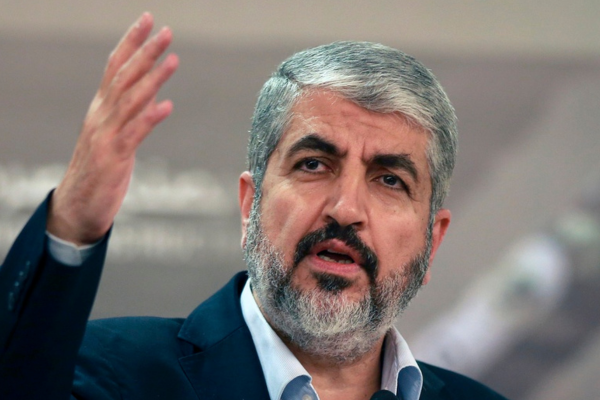As Hamas faces internal rifts, the possibility of ceding control in Gaza looms.
By Baruch Yedid, TPS
A split in Hamas is widening as some senior officials realize that the terror group will not remain in Gaza after the war.
Hamas’s “Qatari” camp, led by Khaled Mashaal and Musa Abu Marzouk, views exile as inevitable, while the terror group’s “Iranian” camp led by Yahye Sinwar and Saleh Arouri remains defiant on staying in Gaza, the Tazpit Press Service has learned.
“It is clear that Hamas internalizes the fact that it will have to give up its rule in the Gaza Strip and even hand over the keys to a new and different Palestinian entity that will be based mainly on the Palestine Liberation Organization,” an Arab source involved in talks between Hamas, the Palestinian Authority and several Arab countries told TPS.
“Official and semi-official talks” have been taking place in Qatar in recent days, joined by Egypt, Saudi Arabia and the United Arab Emirates.
The Arab source stressed to TPS, “These understandings come mainly from the ‘Qatari group’ in Hamas.”
“We were very surprised to see how far the Hamas members who are in Qatar went and came close to the Fatah and PLO positions,” the source added.
Hamas officials in the Qatar camp “express a great willingness to join the PLO and now it remains mainly to conclude the conditions for this,” the source said, adding that Sinwar bitterly opposes the Qatari talks and is “furious with his colleagues.”
This is why Sinwar recently sent several letters to Hamas leaders in Qatar trying to convince them he is in good control of the Gaza Strip.
“Sinwar forbids any discussion of the question of the day after the day that does not take place with his consent or in his presence,” the Arab source told TPS.
But no Arab country is willing to finance Gaza’s reconstruction if Hamas remains in control, and without significant reforms from the Palestinian Authority. The UAE, for example, is pressuring Hamas to disarm and demobilize, which the Emiratis say would pave the way for Gaza’s restoration.
“Sinwar believes that he achieved the historic achievement in invading the Western Negev,” the Arab source told TPS. “And now he is signaling that he prefers a unified Palestinian entity that will rule the Gaza Strip and the territories of Judea and Samaria.”
The source said, “Indications were received that Sinwar will hand over the keys to the Gaza Strip to the new Palestinian Authority the day after the war in the Gaza Strip.”
Egypt, the main player in the matter, has proposed “a government of technocrats,” a veiled swipe at both Hamas and the Palestinian Authority.
“It’s not for nothing,” the Arab source told TPS, that Hamas and the Palestinian Authority refuse to accept the term “technocrat government,” but they are now ready to discuss a Palestinian unity government, including the PLO. But the split between Hamas’s Qatari and Iranian camps prevents this.
Meanwhile, the UAE has signaled its preference for Mohammed Dahlan. Dahlan, once a high-level figure within Fatah, was the Palestinian Authority’s Gaza “strong man” when Hamas violently seized control of the Strip in 2007. But as Dahlan regained influence within Fatah, he had a falling out with Abbas and was expelled from the party in 2011. He was later tried in absentia in Ramallah on charges of corruption, charges which Dahlan denies.
Israeli Prime Minister Benjamin Netanyahu has ruled out letting Hamas or Fatah control Gaza after the war. However, National Security Advisor Tzachi Hanegbi recently wrote in the Saudi website, Elaph, that Israel was prepared to work with moderate figures in both Gaza and the Palestinian Authority.
At least 1,200 people were killed in Hamas’s attacks on Israeli communities near the Gaza border on Oct. 7. The number of men, women, children, soldiers and foreigners held captive in Gaza by Hamas is now believed to be 129. Other people remain unaccounted for as Israeli authorities continue to identify bodies and search for human remains.
